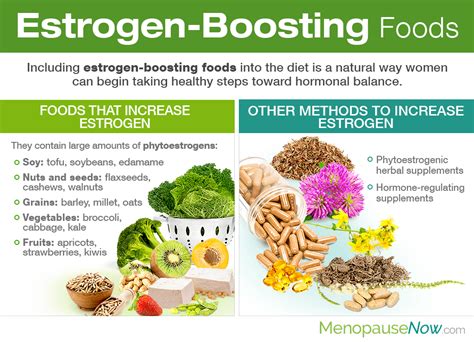How to Boost Estrogen Naturally: Holistic Ways to Support Hormonal Balance
Estrogen, a primary female sex hormone, plays a crucial role in various bodily functions, from reproductive health to bone density. Fluctuations in estrogen levels can lead to a range of symptoms, prompting many women to seek natural ways to boost their estrogen levels. While medical intervention might be necessary in some cases, several lifestyle choices and dietary adjustments can significantly support healthy estrogen production. This guide explores natural methods to boost estrogen, emphasizing holistic approaches and sustainable lifestyle changes.
Understanding Estrogen and Its Importance
Before diving into methods to boost estrogen, it's crucial to understand its role. Estrogen is vital for:
- Reproductive health: Regulating the menstrual cycle and supporting fertility.
- Bone health: Protecting against osteoporosis and maintaining bone density.
- Cardiovascular health: Protecting against heart disease.
- Cognitive function: Supporting brain health and cognitive performance.
- Mood regulation: Influencing mood and emotional well-being.
Imbalances in estrogen can manifest as various symptoms including irregular periods, hot flashes, night sweats, vaginal dryness, weight gain, and mood swings. It's crucial to consult a healthcare professional before making significant dietary or lifestyle changes, especially if you are experiencing concerning symptoms.
Natural Ways to Boost Estrogen
Several natural methods can support healthy estrogen levels. These approaches focus on optimizing overall health and well-being, rather than directly manipulating hormone levels.
1. Dietary Adjustments: Fueling Your Body for Estrogen Balance
What to include:
- Phytoestrogens: Foods rich in phytoestrogens, plant-based compounds with estrogen-like effects, are crucial. These include:
- Soy products: Tofu, tempeh, edamame.
- Flaxseeds: A powerhouse of lignans, a type of phytoestrogen.
- Sesame seeds: Another excellent source of phytoestrogens.
- Whole grains: Oats, barley, and brown rice.
- Cruciferous vegetables: Broccoli, cauliflower, Brussels sprouts, and cabbage contain compounds that support liver function, which is essential for estrogen metabolism.
What to limit:
- Processed foods: These often lack nutrients and can disrupt hormonal balance.
- Excessive alcohol consumption: Alcohol can interfere with hormone production.
- High-sugar diets: High sugar intake is linked to hormonal imbalances.
2. Lifestyle Modifications: Supporting Hormonal Health
- Manage stress: Chronic stress significantly impacts hormone levels. Incorporate stress-reducing techniques such as yoga, meditation, or spending time in nature.
- Prioritize sleep: Adequate sleep (7-9 hours per night) is vital for hormonal regulation. Establish a consistent sleep schedule and create a relaxing bedtime routine.
- Regular exercise: Moderate exercise helps regulate hormones and maintain a healthy weight. Aim for at least 30 minutes of moderate-intensity exercise most days of the week.
- Maintain a healthy weight: Obesity can disrupt hormonal balance. Maintaining a healthy weight through diet and exercise supports healthy estrogen levels.
3. Herbal Remedies: Exploring Natural Options
While herbal remedies can potentially support estrogen balance, it's vital to consult with a healthcare professional before using them. Some herbs associated with estrogen support include:
- Red clover: Contains isoflavones, a type of phytoestrogen.
- Dong quai: Traditionally used in women's health, but requires careful consideration and professional guidance.
Disclaimer: Seeking Professional Guidance
The information provided here is for educational purposes only and should not be considered medical advice. Always consult with a healthcare professional before making significant changes to your diet or lifestyle, especially if you are experiencing symptoms related to hormonal imbalances. They can accurately diagnose any underlying conditions and recommend the most appropriate course of action. Self-treating can be risky, so prioritize professional medical guidance for personalized recommendations.
